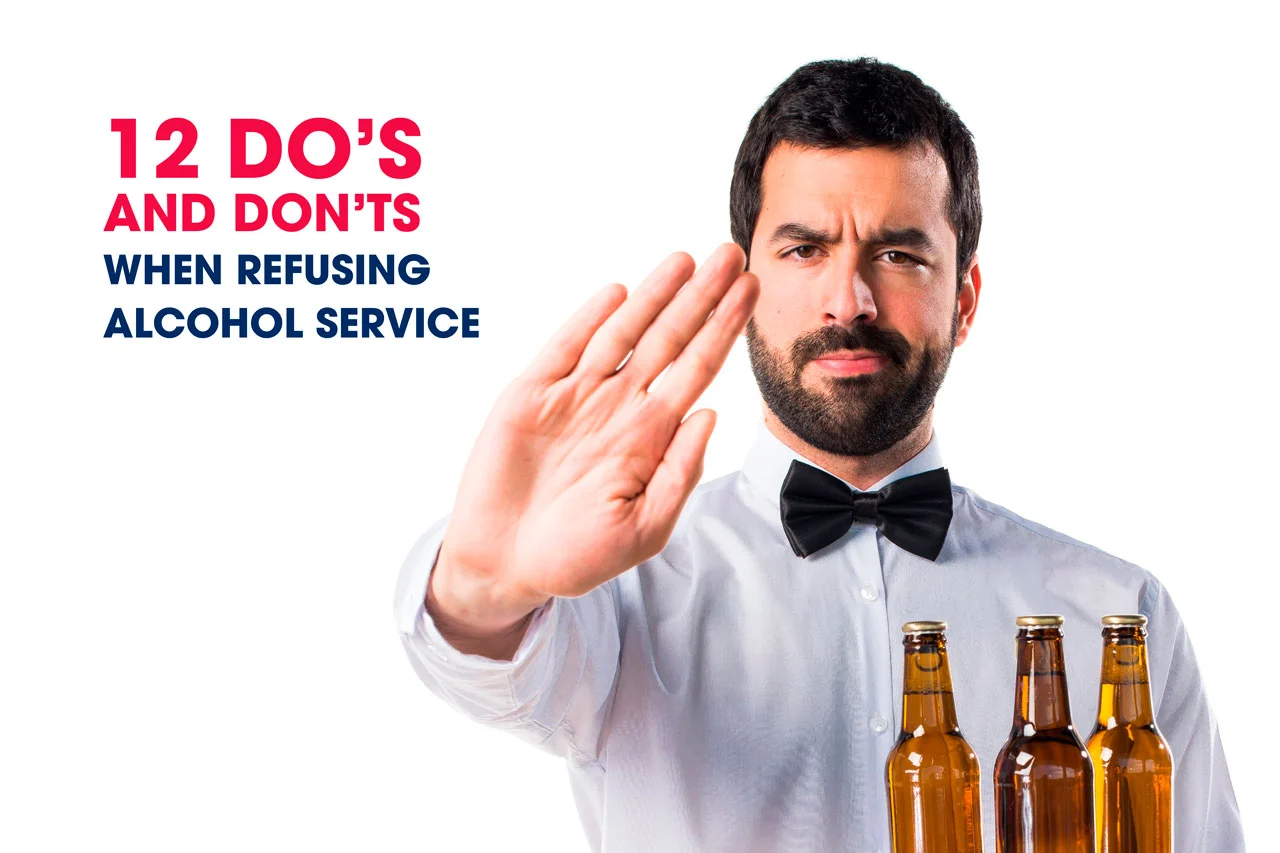Guidelines for Refusing Alcohol Service: Dos and Don’ts to Follow

At some point, most alcohol servers are faced with a decision to refuse alcohol service to a guest. Whether this decision is based on legal or safety requirements, it is important to deliver a consistent message that all guests understand. Before refusing to serve a guest, or stop a guest from drinking, you or your supervisor should first engage in a conversation with the guest. Speaking to a guest helps to identify possible causes or signs of intoxication, which is important in meeting your alcohol server obligations. It also helps ensure that you are not unknowingly discriminating against a guest based on a physical impairment. A hospitality establishment may require their alcohol servers to attend a TABC Seller-Server Training Course or have a written policy that deals with refusing alcohol service. If so, this provides their servers a clear understanding of their responsibilities and the steps to take when refusing to serve a guest. The following are suggested do’s and don’ts when refusing alcohol service to a guest: The Do’s
- Be polite and courteous. Politely inform the guest you are no longer able to serve them any more alcohol.
- Point to any signs or posters relating to alcohol service that may reinforce your decision.
- Clearly, and politely, explain the reason for your refusal to serve alcohol to the guest.
- Offer a non-alcoholic beverage instead, or to arrange transportation (taxi, uber, friend) for them to get home safely.
- Make sure they leave the premises safely and that they do not around outside.
- Memorialize any incidents relating to your refusing alcohol service by writing it in an incident book (or similar) – especially those involving threats or aggression.
- Advise your supervisor and other bar staff that the person has been refused alcohol service to ensure they are not served by someone else.
The Don’ts
- Don’t antagonize your guest when refusing alcohol service – no matter how obnoxious or belligerent they may get.
- Don’t be persuaded into giving them ‘one last drink’ especially after you’ve stated they already had too much.
- Don’t agree to let the guest finish their drink.
- Don’t raise your voice. Speak calmly but firm and resolute.
- Don’t think the matter is over because you have verbally addressed the situation. Inspect to ensure the guest has not found another avenue to drink (i.e. going to another table, bar, or sharing with a friend).
